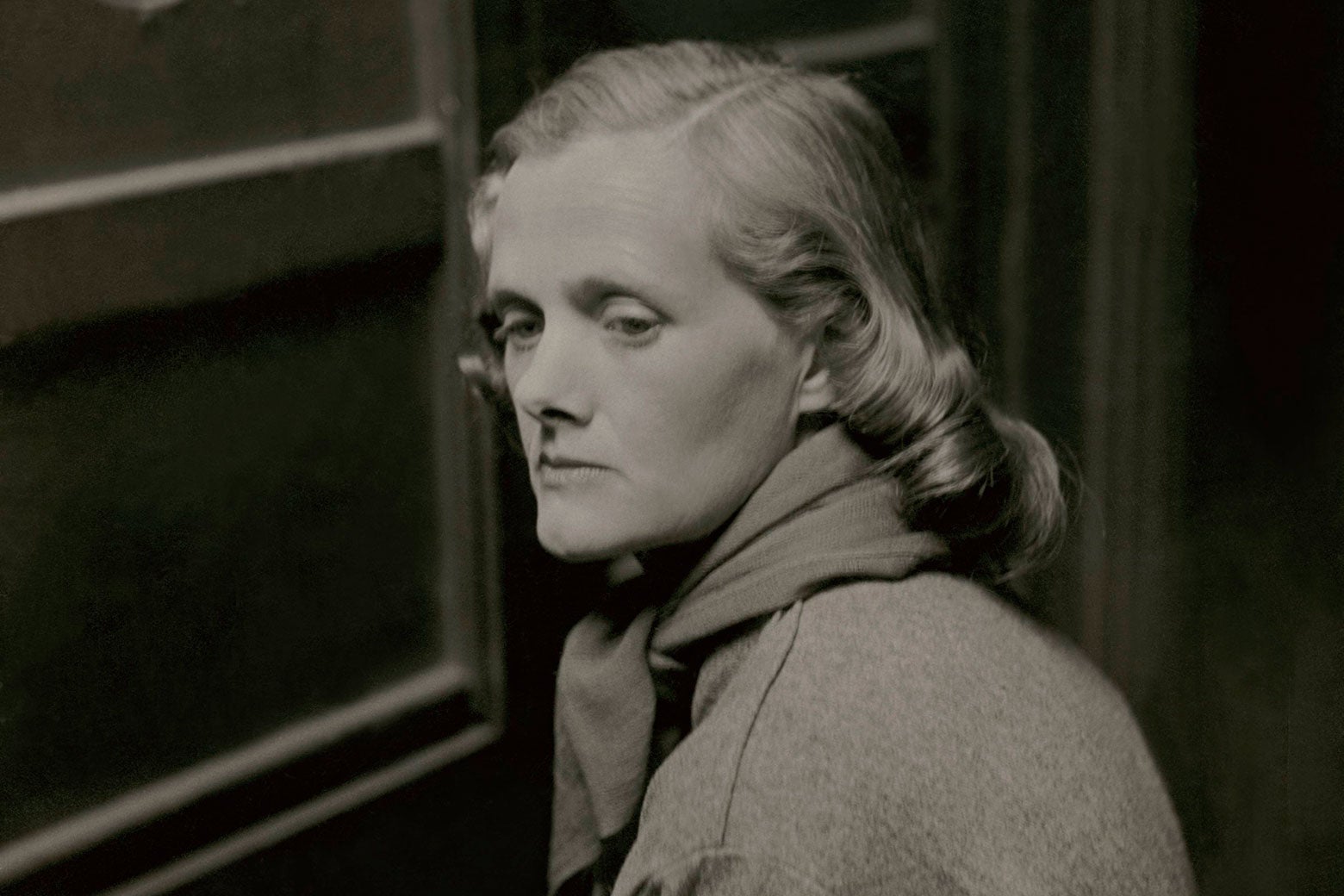
"Daphne du Maurier wrote 17 novels, a few plays, and numerous short stories, but she's known chiefly for the narrative of the unnamed second Mrs. de Winter, a woman so overshadowed by her husband's late first wife that her own story is titled after her predecessor. True, some are aware that two of du Maurier's short stories, "The Birds" and "Don't Look Now," were adapted as great films by Alfred Hitchcock and Nicolas Roeg, respectively."
"After Midnight, a new collection of du Maurier's short stories with an introduction by Stephen King, makes a bid to correct that. The collection's subtitle, "Thirteen Tales for the Dark Hours," nudges the English writer's reputation away from romance-a peculiar term for a novel as ominous as Rebecca-and toward the gothic, a genre in which she seems more at home."
Daphne du Maurier wrote 17 novels, several plays, and numerous short stories, but popular recognition has concentrated on Rebecca and its unnamed second Mrs. de Winter. Two of her short stories, "The Birds" and "Don't Look Now," became acclaimed films directed by Alfred Hitchcock and Nicolas Roeg. Critics historically dismissed much of her work as merely romantic, even though many pieces align more closely with gothic sensibilities. After Midnight, a new collection of du Maurier's short fiction with an introduction by Stephen King, emphasizes the darker, gothic elements and seeks to revive interest in her broader literary legacy, similar to renewed attention to Shirley Jackson's work.
Read at Slate Magazine
Unable to calculate read time
Collection
[
|
...
]